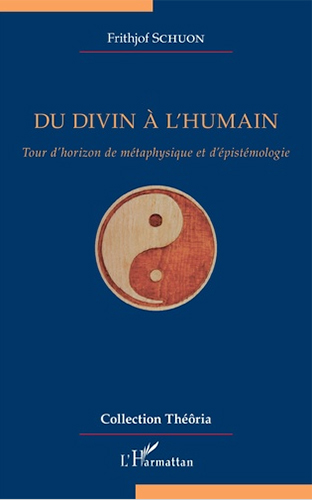
Frithjof Schuon Archive

Briefe
| Titel | Zusammenfassung | Publication Data | Dated |
|---|---|---|---|
| Extract from a letter from Frithjof Schuon | Regarding the question of transubstantiation, which I address briefly in Logic and Transcendence, the Oriental character of the words in question can be seen in their use of ellipsis: Christ did not say, “I am like a vine, like a door”, but he said, “I am the vine, the door”; likewise he did not say, “This conveys divine power in the same way my body conveys divine power”, but he said, “This is my body”. | Logic & Transc. p.237 | 02/01/1976 |
| Extract from a letter from Frithjof Schuon | One should not reproach a science for not being what it does not want to be or for not providing what it does not want to provide. In this respect one should not criticize modern chemistry insofar as it studies the phenomena it intends to study, for on its limited plane it remains within adequation and is not exceeding its strengths; nor can one blame it for remaining within the strictly human perspective in relation to matter, for it need not go beyond this point, and indeed no physical science needs to do so. | Logic & Transc. p.235 | 06/22/1964 |
Featured Books
Du divin à l’humain (Taschenbuch)
In einer Welt, in der Lehren, die sich auf das Heil der Seelen und die letzten Ziele des Menschen beziehen, sowie die Grundlagen allen Glaubens dazu neigen, zugunsten einer gewaltigen Gleichgültigkeit und einer echten Umkehrung der Werte immer mehr ausgehöhlt zu werden, kommt die Wiederveröffentlichung dieses Werkes zur rechten Zeit.
Featured Poems
Adastra and Stella Maris: Poems by Frithjof Schuon-Narcissus – Euterpe
Poems of youth: all too often they are
Adastra and Stella Maris: Poems by Frithjof Schuon-Unto Itself
Each poem is a world unto itself.
Adastra and Stella Maris: Poems by Frithjof Schuon-Poetry
The wheel of time rolls on and brings me poems,
Featured Articles
Frithjof Schuon And The Perennialist School
Introducing the Writings of Frithjof Schuon
This is the complete “Introduction” to the book — some other articles on this site are excerpted from this piece. It was written by Prof Seyyed Hossein Nasr for one of his most voluminous and important works, The Essential Frithjof Schuon (World Wisdom, 2005). In it, Dr Nasr covers salient features of Schuon’s work; Schuon’s place in the study of comparative religion; his central message or theme; Schuon’s thoughts on the “transcendent unity of religions”; his approach to epistemology and philosophy in general; and Schuon’s contributions to thought on art, beauty, the spiritual life, and many other topics. The “Introduction” ends with brief synopses of Schuon’s individual books. This is among the best summaries of the importance of Frithjof Schuon’s work in many areas of contemporary and traditional thought, written by one of the people best qualified for the task.
